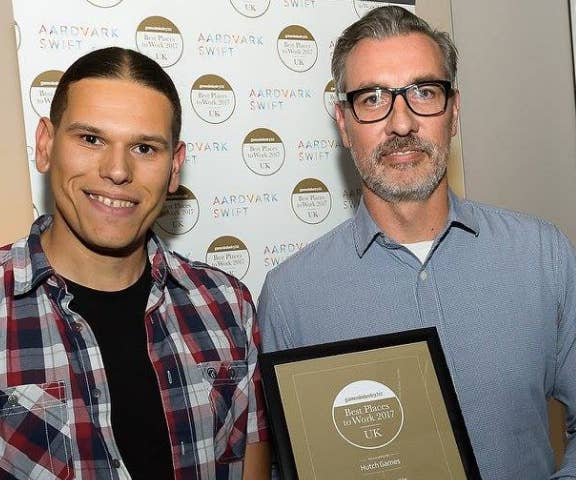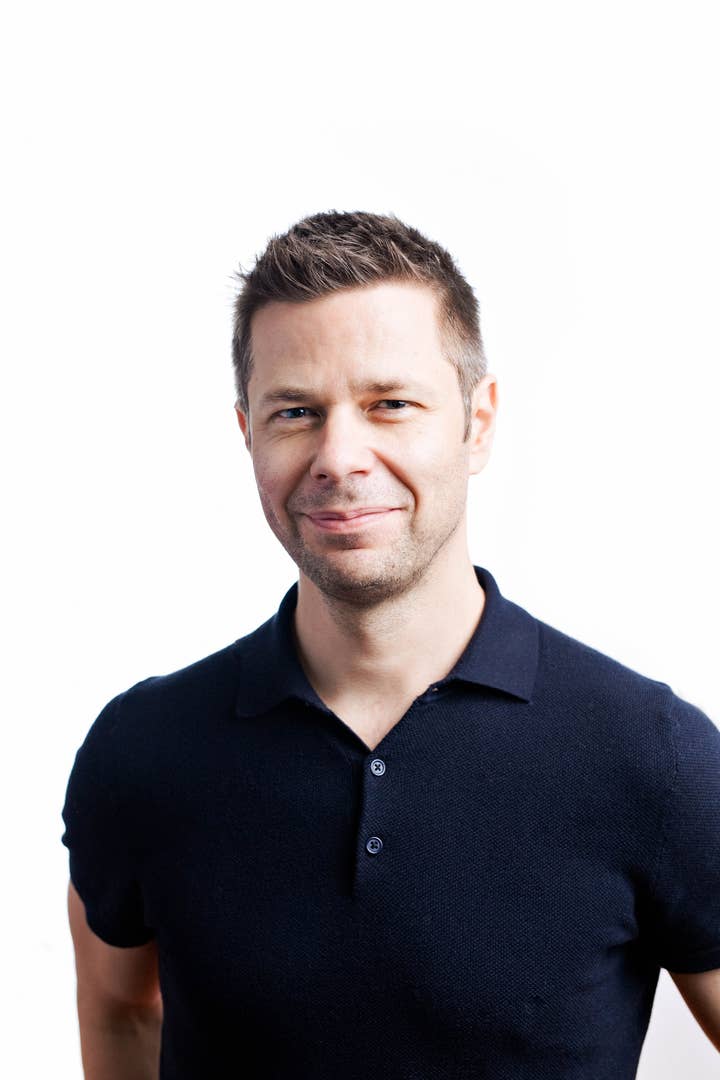Best Places To Work Awards: How to keep hold of your staff
The Best Places To Work winners discuss ways to keep your staff progressing and learning
Our UK Best Places To Work Awards in September was a fascinating look into how games businesses look after their staff.
We had 12 winners, and 50-odd companies that didn't make the cut. But even those that didn't quite get there still scored high results from their employee and employer surveys. The lowest score we had was 67 - in other words, we didn't encounter a bad company during our awards.
Yet what separated the 'best' from the 'good' was pretty much unanimous across the entire spectrum of participants: progression and training.
The companies that excelled in keeping their staff motivated, learning and improving - whether that's through conventional methods of promotion, or by enabling them to get better and keep developing via training and new challenges - were the ones that achieved a 90% approval rating from their employees.
It was clearly an area of weakness, however, for some. So we asked the winners of the Best Places To Work Awards what they do to ensure their staff are progressing.
What sort of measures do you adopt to ensure your staff are motivated and improving?
Helen Powell, D3T: "We have many in-house events to help with motivation, from regular one-to-ones, through to quarterly show and tells. We also offer opportunities for training, and keep our general office atmosphere as motivational as possible. We have ongoing team sharing everyday, which helps train all our employees, but also offer extra organised training where appropriate, from lead training, to online courses. Along with many others, things like our running club and having a company called Body HQ come in monthly for fitness, also add to the motivation of the staff.
Gavin Raeburn, Playground Games: "Aside from setting probation objectives and regular reviews during a new starter's probationary period, we ensure that every team member has an annual appraisal and regular one-to-one meetings with their manager. This not only helps to ensure a high level of performance and support any training needs, but it also ensures regular recognition. Our aim is that all our employees feel valued, engaged and inspired.
"Our leads and managers receive training in managing performance and objective setting. Feedback at Playground is two-way, and we run a regular Staff Satisfaction Survey where everyone is invited to provide feedback across a broad range of areas. This has resulted in many positive changes in the studio over recent years. Gathering feedback this way ensures we have a good barometer of how happy, motivated and engaged people are feeling within the studio."

Shaun Rutland, Hutch: "Our team is included in every major decision we make as a business. We engage the team first to determine enthusiasm. We do this, as we want our team to remain passionate about what we do and the games we make. We believe a motivated team that has a collaborative vision will make better games.
"In terms of structure, it's the sole responsibility of managers to motivate, encourage and improve their team. Regular meetings ensure recent successes, tension points and training can be discussed and this is done one-on-one or as a group. With training, we give our team the autonomy to identify the areas they'd like to improve. They have access to a dedicated budget, which can be used for various training courses and conferences. This is key for employees to learn new skills outside their specific job role and better understanding the responsibilities of their fellow colleagues."
Tim Heaton, Creative Assembly: "We feel pretty lucky at CA. We have a variety of projects, some within the legendary Total War: Warhammer world, others which are unannounced and so incredibly exciting that it creates a real buzz around the studio. These all bring with them new innovations and challenges, different ideas to explore and different people to work with.
"Having all our studio functions in-house, from motion capture to sound design, cinematics and marketing, we can give our people a lot of opportunities to try new things. And that's fantastic.
"Our career development paths are an area we've really focused on over the last year and in fact, last month we've launched our Expert and Leadership pathways. We take an individual approach to everyone's development looking at what will help them to progress their careers, whether expert skills or leadership.
"This approach is working and over 30% of our vacancies have been filled by internal promotions over the last 12 months alone. This opens opportunities for young talent to enter the industry at Creative Assembly, who continually bring fresh ideas to our games."
Simon Hope, Aardvark Swift: "Continued professional development is something that a lot of our candidates want to know about when we're talking through job opportunities with them. They want to know if training is offered, and there's bonus points for studios who demonstrably encourage internal progression. These guys are craving careers and stability, not just a job to pay the bills.
""Lack of opportunities is one of the main reasons we hear from candidates when asked why they're wanting to leave their current studio"
Simon Hope, Aardvark Swift
"Retention is cheaper than recruitment. The main problem we see time and time again is studios spending more money on recruitment than on retention. We want to see the people we place stay at their studio and eventually come back to us to help them grow their team.
"Lack of opportunities is one of the main reasons we hear from candidates when asked why they're wanting to leave their current studio. These are the most driven and ambitious candidates, and the people who are most likely to pose the biggest blow by leaving. It's important to remember that the relationship between staff and employers goes two ways. Holding a purpose and feeling valued are two incredibly powerful motivators. Showing interest and commitment in your employees by providing training to progress their skills and career goals will ultimately develop your staff into a more loyal, hardworking, motivated team."
How much emphasis do you put on training?
Tim Heaton, Creative Assembly: "Alongside in-house training and online learning we look at a variety of workshops and opportunities. For example, our annual Coder-Con, which we open to all Sega's programmers, has been hugely successful for sharing research and innovations across the Sega family. In previous year's we've had Scott Meyers providing the keynote and now in its fifth year we are looking forward to welcoming Frances Buontempo.
"It's been important to take on feedback and adapt to make training effective and engaging. We've been developing our leadership bootcamp over the last few years, and our approach to enhancing the skills of our leaders is constantly evolving. It's probably changed quite a bit from when we first started and it will continue to change."
Simon Hope, Aardvark Swift: "Not all training has to be done through external agencies. While they're certainly a valuable resource, training your staff yourself can be cost-effective and, more crucially, be tailored to your studio. Expanding a developer's job to include higher level responsibilities will not only train them for a more senior position, but will also satisfy the human desire to grow and improve. Better yet, these responsibilities could be reassigned from a more senior member of staff and alleviate boredom where the task has become routine.

"I'm a big believer of learning by doing, and this can be easily applied to training in the games industry. Studio game jams are not only a fantastic team-building day out, but they're also an effective, practical means of training leadership and technical skills. They act as a creative outlet for people who are stuck in a long term project and an opportunity for non-production staff to get involved; there's always jobs that need doing, from developing documents to creating marketing plans. Game jams provide first-hand management experience in a controlled, safe environment."
Gavin Raeburn, Playground Games: "We recognise that in a fast-moving industry, learning and development are crucial, and we understand that our employees want to learn new skills for their own personal and career development. We therefore have a very flexible approach to learning and development. This can range from knowledge-sharing at our weekly Team Meeting through to attending structured training programmes.
"We engage professional trainers for personal and management skills development and online training to fit into busy schedules as appropriate. Knowledge sharing and in-house training works best in our experience, which is also why we have a 'Buddy' system for new starters. Our appraisal and training systems support our career development framework and talent management. Having clear goals and constructive feedback works well in our experience. I think our low staff turnover level and the quality of our games is testament to that."
"Staff have full visibility of our role definitions, so they know what they are aiming for"
Helen Powell, D3T
Shaun Rutland, Hutch: "Training has helped us maintain our key processes and philosophy - something that has been crucial as we have grown. We've done studio training sessions to develop a better understanding of agile development, lean startup philosophies and F2P.
"The team was given access to Udemy accounts - an online training tool - but this didn't work so well. This tool gave the team the freedom to add courses they were interested in. These were then completed in their spare time. While this seemed like an interesting training option at the time, it never really developed into something that would consistently provide value."
How do you reassure staff over progression opportunities?
Helen Powell, D3T: "Staff have full visibility of our role definitions, so they know what they are aiming for and how to achieve it. Staff respond well and know how they are progressing through the feedback they get at each meeting.
Shaun Rutland, Hutch: "We provide mentorships in different areas of development so our employees can start evolving their skill-sets and broaden their perspectives. We are totally transparent in the way we run our business and present the business performance to the team on a weekly basis."
The Best Places To Work Awards 2017 was sponsored by Aardvark Swift. The winners included Creative Assembly, Criterion Games, D3T, Double Eleven, Failbetter Games, Hutch, Playground Games, Space Ape Games, Studio Gobo, Twitch, Unity, Wish Studios.
